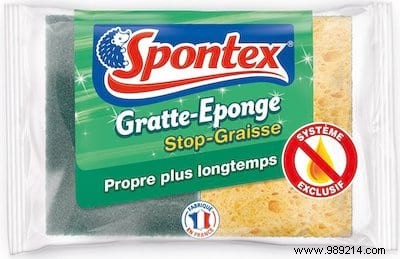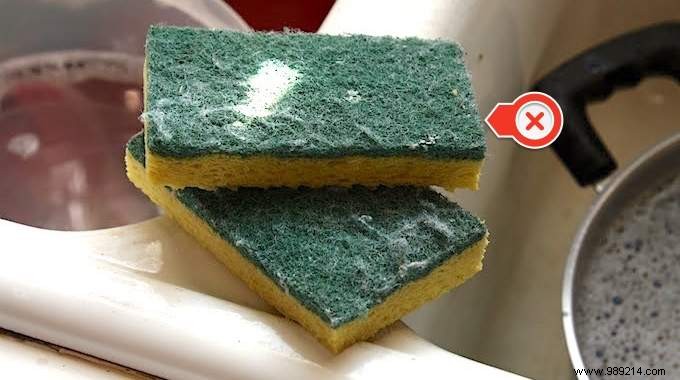
Stop! Drop your sponge and step away from the microwave!
A new study reveals that kitchen sponges are veritable nests for germs!
It was thought that microwaving a sponge was enough to kill all the microbes on the sponge.
But in fact, it is nothing! It's even the opposite... Indeed, the microwave disintegrates only the weakest bacteria.
But the most resistant bacteria survive easily in the microwave.
And as afterwards there are no more other bacteria on the sponge, they take the opportunity to colonize all the rest of the sponge!
The concern is that it is these bacteria that are potentially dangerous to health.
As a result, your sponge becomes even stinkier and more disgusting . Yuck!
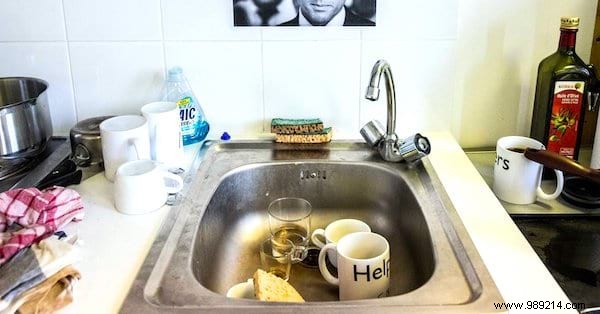
Bacteria are everywhere in the world. So it's no surprise that kitchen sponges are also full of them.
In contrast, previous studies have greatly underestimated the number and variety of bacteria which may be in a kitchen sponge.
Dr. Markus Egert is a microbiologist at the University of Furtwangen, Germany.
He and his team analyzed DNA samples collected from used sponges.
They identified no less than 362 species different bacteria alive inside 14 used sponges.
But what surprised the research team the most was the density of these bacteria populations.
Indeed, microbes abound in the extremely narrow spaces of a sponge.
Thus, German researchers have counted no less than 82 billion bacteria living in a space of only 16 cm 3 .
Incredible, isn't it? A real anthill!
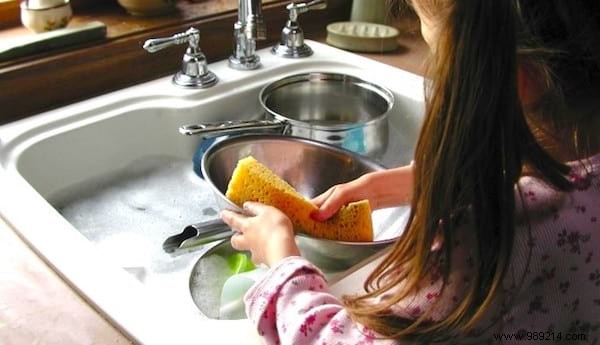
"This is the same density of bacteria that can be found in a human stool sample," adds Dr. Egert.
"There is probably no other place on Earth with such a density of bacteria."
In fact, bacteria are attracted to sponges because they find perfect living conditions there.
For them, it's paradise:a warm, moist, nutrient-rich place to feed and thrive.
Among the billions of microbes that take advantage of these 'comfortable' conditions, researchers have found a bacterium called Moraxella osloensis .
It is a bacterium particularly widespread in nature and which also lives on human skin.
It is difficult to assess the precise risk posed by the presence of Moraxella in the sponges.
But a study from the University of Oxford showed that Moraxella causes infections in people with sluggish immune systems.

According to a study published by the American Society for Microbiology, Moraxella osloensis is the main cause of bad odors in dirty laundry.
And it is surely because of this same bacteria that your used sponges end up giving off a foul odor.
In fact, this bad smell is a simple chemical compound produced by the metabolism of Moraxella osloensis .
Indeed, this bacterium feeds on fats and then rejects them. And it's that greasy excrement that smells bad!
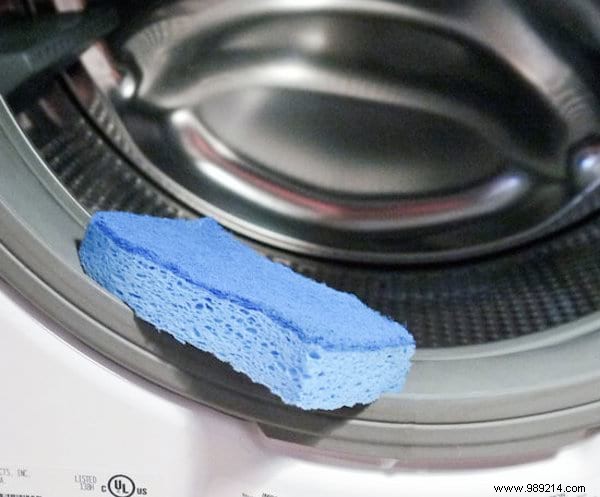
If microwaving a dirty sponge only makes things worse, what are the most effective methods?
Instead of putting your sponge in the microwave, there are other effective tips for cleaning them.
You can in particular put them in the washing machine, in the dishwasher, soak them in white vinegar, baking soda, or even coarse salt overnight.
You can also try boiling them in an old pot.
Unfortunately, these methods for disinfecting a kitchen sponge are not 100% effective
Indeed, researchers have also discovered dangerous bacteria in the sponges of people who say they disinfect them regularly!
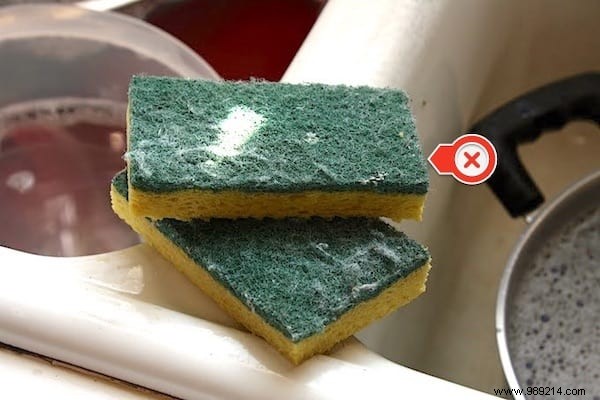
According to Dr. Egert, since it is impossible to completely disinfect a dirty sponge, it is better to replace it with a new one, approximately once every 2 to 3 weeks.
Especially when your sponge is so dirty that it starts wandering around the edge of the sink on its own...
The problem is that sponges are not cheap, especially those that are really effective like these.
But then what to do with old used sponges?
After cleaning them, you just have to avoid using them in the kitchen!
No more cleaning the countertop in the kitchen or the fridge with a dirty sponge...
Indeed, this is where there is the highest risk of food contamination.
Instead, use them somewhere less hygienic, like the bathroom or toilet.
If you have decided to replace your sponges more regularly, be aware that not all sponges are created equal.
Some are much cheaper like these but last 3 times as long... So it's really not worth it!
The best is to invest in quality sponges like these which have a good lifespan and an affordable price:
